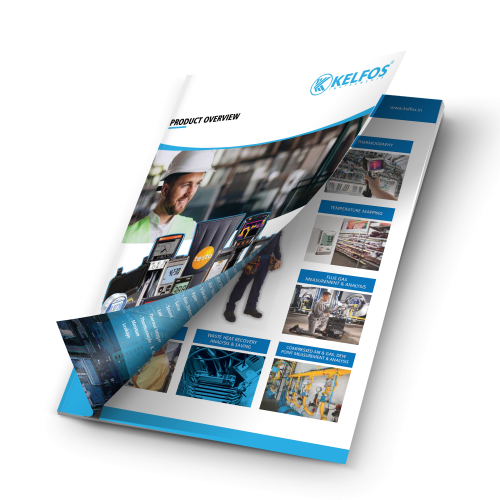Hospitals & Cleanroom
Climate monitoring in hospitals
Temperature and humidity monitoring in medical facilities, including operating rooms, recovery rooms, cleanrooms, labs, and waiting areas.
IAQ monitoring for medications, vaccines, lab samples, blood reserves, or tissue samples in freezers and refrigerators.
Temperature and humidity monitoring while goods, like food, medications, or blood supplies, are being transported.
Digital and automated: IAQ monitoring with a single solution
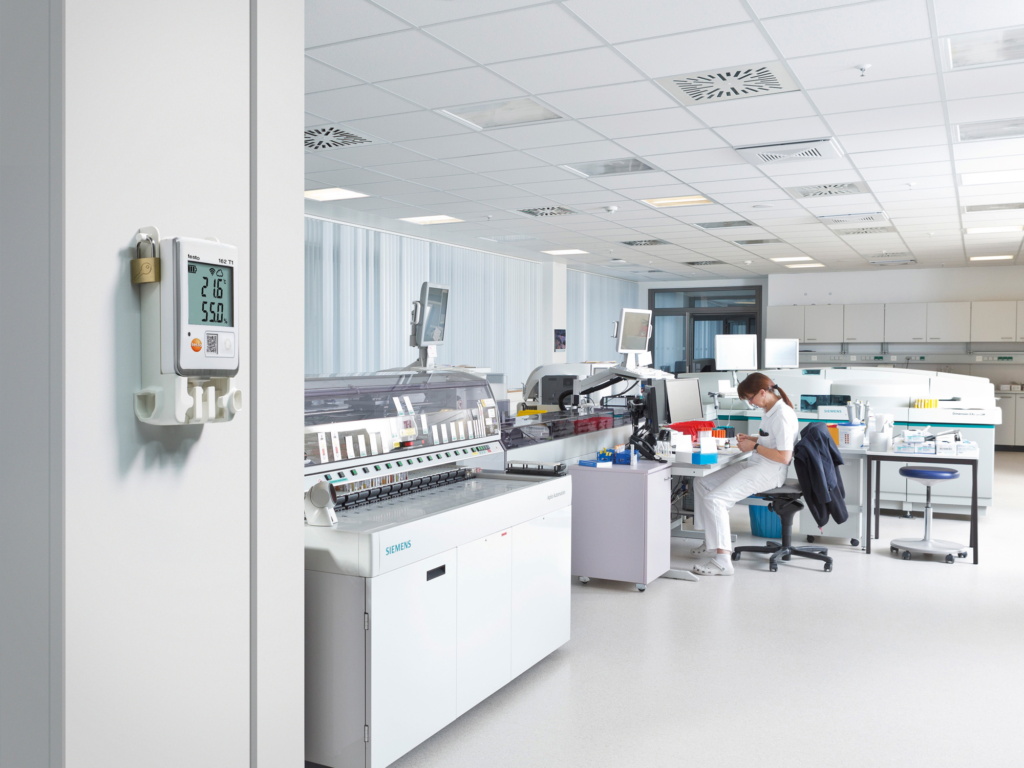
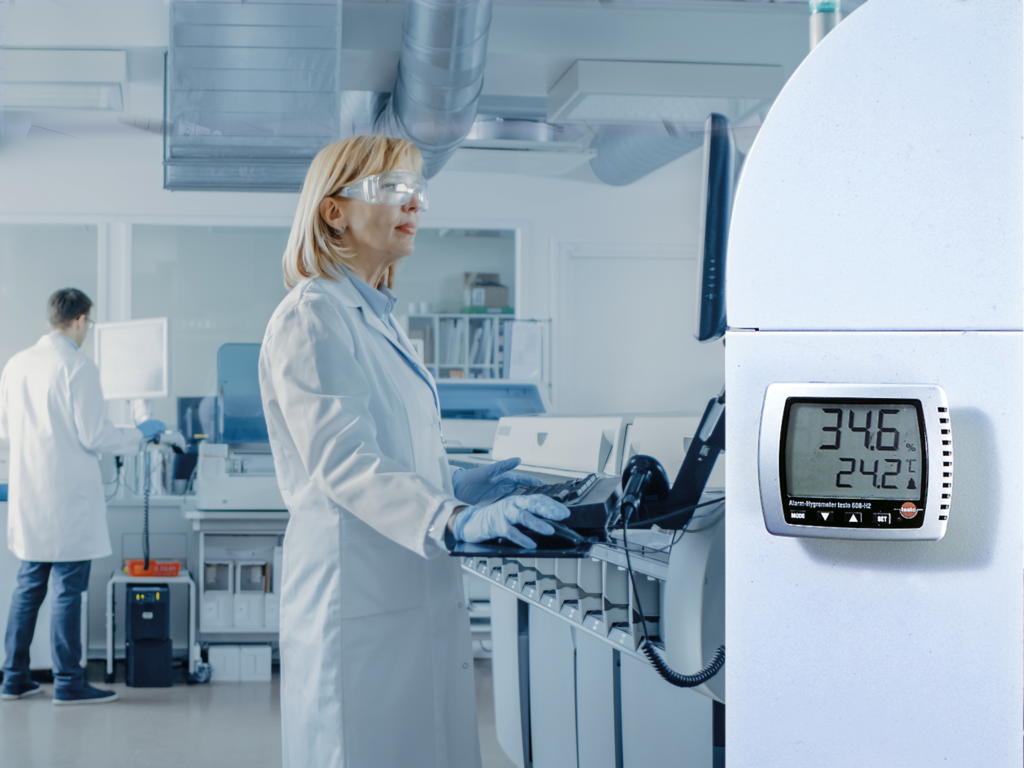
Merely performing spot-check measurements of important quality parameters like temperature and humidity is insufficient for the daily operations of a modern hospital. Actually, what is needed is comprehensive indoor climate management based on data that is continuously measured and recorded: Using an automated, digital monitoring system that handles all of the temperature and humidity monitoring in clinics for you. In hospitals, the health and welfare of the patients come first. For this reason, stringent regulations apply to all healthcare systems and procedures. In order to guarantee quality, temperature and humidity levels must be continuously monitored.
Measurement of differential pressure in cleanrooms
Pressure differentials between 5 and 20 Pa must be maintained between cleaner and less clean rooms in different cleanroom classes. When doors are opened, the cleanroom’s low positive pressure makes sure that no air returns from the unclean area to the cleaner area. Airlocks for personnel and materials also provide access to the cleanroom with the lowest level of contamination, where powerful air currents stir up the particles and filter them out. The pressure differential between a cleanroom and its surroundings, personnel and material airlocks, and cleanrooms of other purity classes must be tested in accordance with DIN EN ISO14644-3. Environmental measurement solutions are utilized in a variety of healthcare settings to guarantee patient safety, lower the possibility of product losses, and address compliance issues. Whether in a blood and tissue bank to preserve samples, in hospital operating rooms and treatment rooms to keep an eye on medications, or in an internal pharmacy where delicate drugs are produced and kept.
Precision temperature monitoring involves using highly accurate temperature sensors and measurement systems to obtain reliable temperature readings critical for industrial and scientific applications. The most precise methods typically employ Resistance Temperature Detectors (RTDs), thermocouples with cold junction compensation, or advanced digital temperature sensors integrated with precision analog front ends (AFEs) to achieve accuracies around ±0.1°C or better
Ensuring Safety and Compliance in Healthcare
Continuous Monitoring: Our state-of-the-art data loggers and sensors provide real-time tracking of temperature, humidity, and particulate levels to prevent contamination and ensure optimal conditions for patient care and pharmaceutical storage.
Rapid Response to Deviations: Our systems enable immediate detection of parameter deviations, triggering alerts and facilitating corrective actions to maintain compliance and protect sensitive products.
Documentation and Reporting: Automated data collection and secure documentation help hospitals meet stringent audit requirements, ensuring transparency and traceability in environmental control.
Applications
Operating Theatres & Treatment Rooms
Maintaining sterile conditions in operating theatres and treatment rooms is essential to prevent surgical site infections (SSIs) and ensure patient safety. This involves a combination of rigorous environmental cleaning, strict hand hygiene, proper surgical attire, and adherence to aseptic techniques.
Our expertise in the field
Kelfos specializes in providing comprehensive environmental monitoring solutions tailored for operating theatres and treatment rooms, ensuring optimal conditions to safeguard patient safety and support infection control. Continuous Environmental Monitoring.
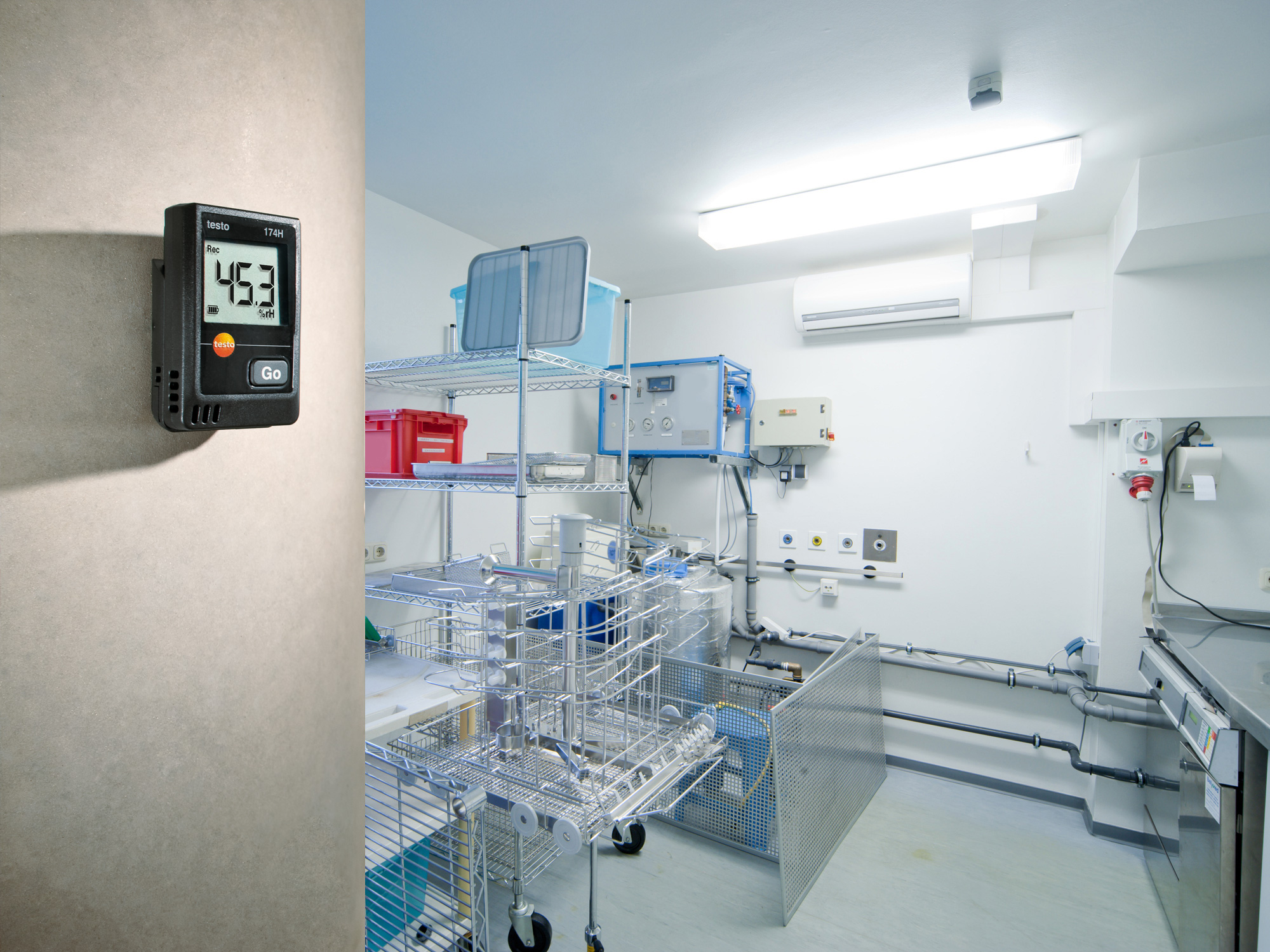
Hospital Pharmacies
Hospital pharmacies must comply with Good Manufacturing Practice (GMP) and PIC/S standards, especially as regulations become more stringent. Continuous environmental monitoring of production and storage areas for temperature, humidity, and particulate levels.
Our expertise in the field
Kelfos possesses deep expertise in providing advanced environmental monitoring and control solutions specifically designed for hospital pharmacies, ensuring compliance, safety, and product integrity in sterile compounding and medication storage areas.
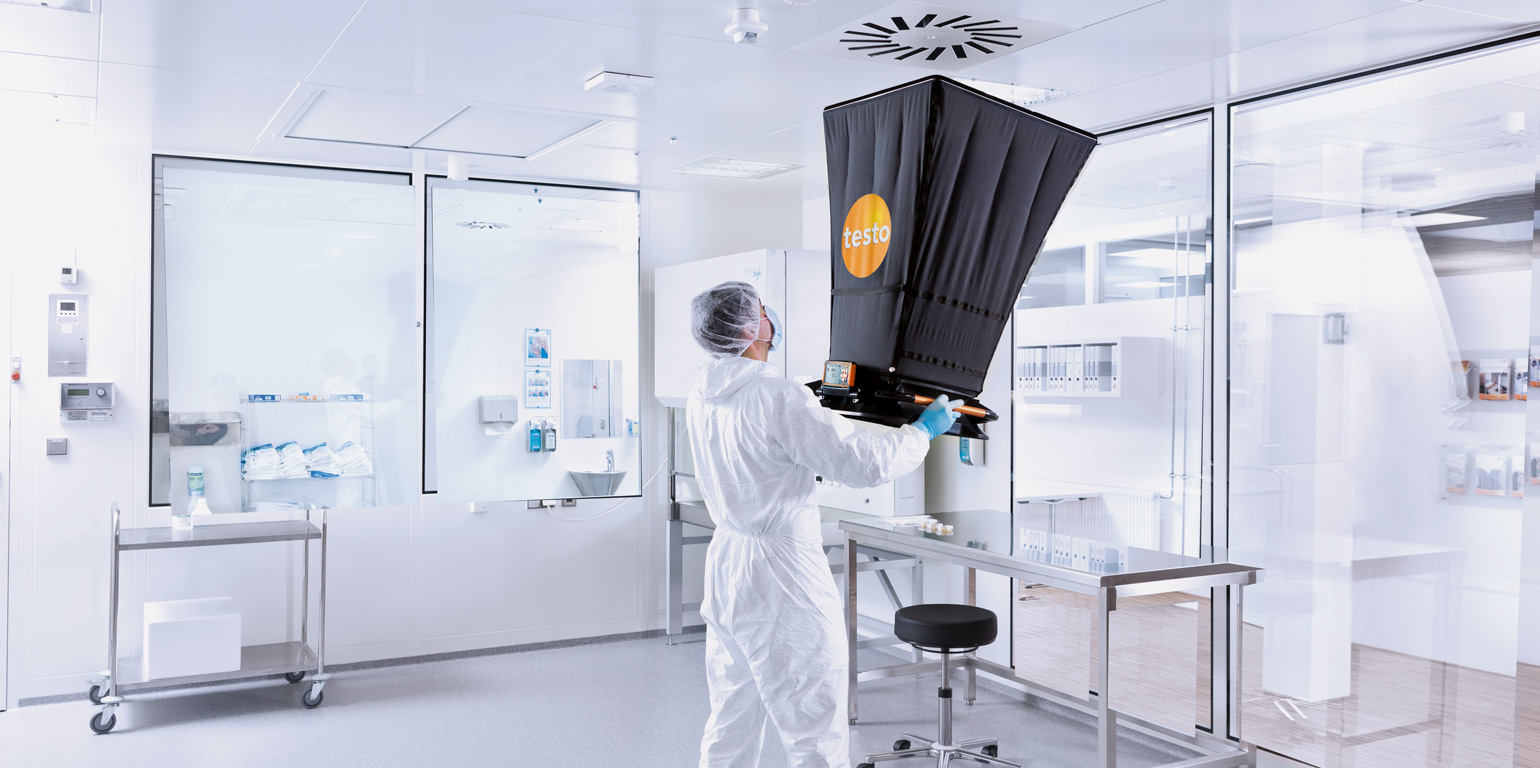
Cleanrooms
Cleanrooms are specialized environments designed to control airborne particulates, temperature, humidity, and microbial contamination—crucial for pharmaceutical manufacturing and research. Continuous monitoring and documentation of environmental parameters to ensure compliance and product integrity
Our expertise in the field
Kelfos brings extensive expertise in cleanroom environmental monitoring and control, delivering advanced solutions that ensure compliance, product integrity, and operational excellence across highly regulated industries such as pharmaceuticals, biotechnology, healthcare, and electronics manufacturing.
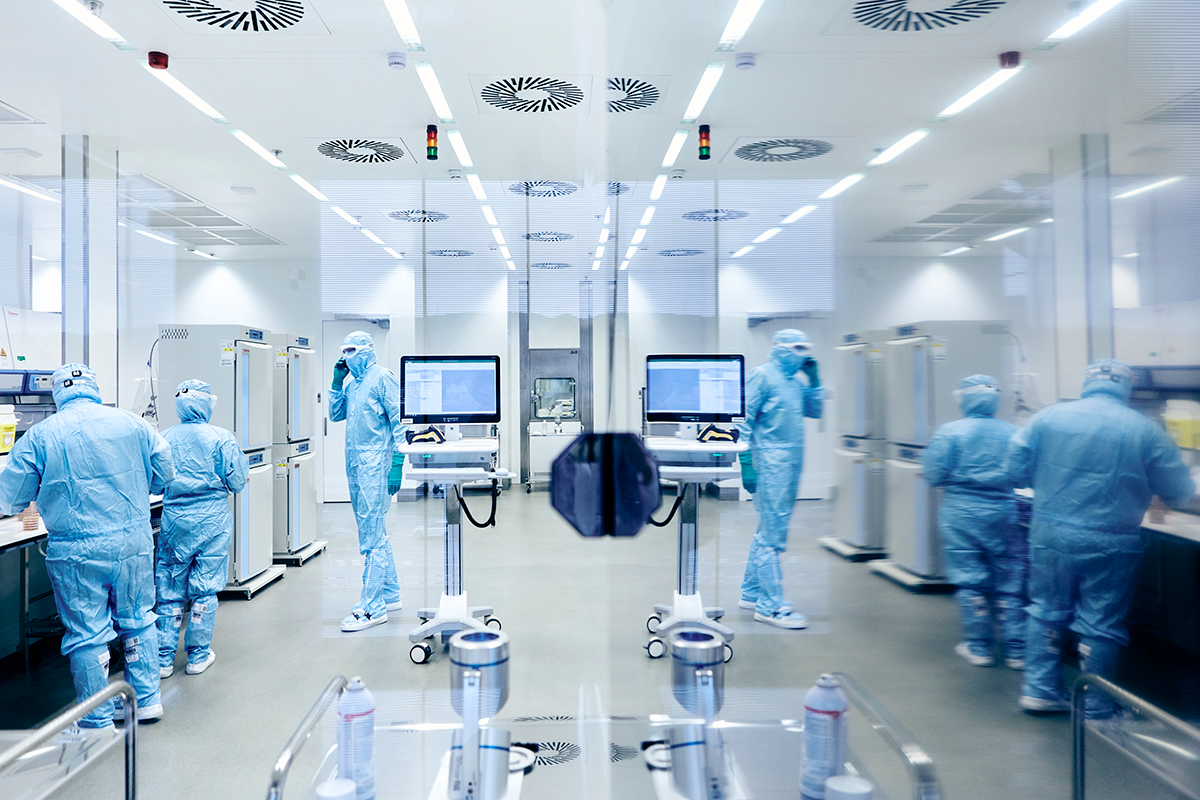
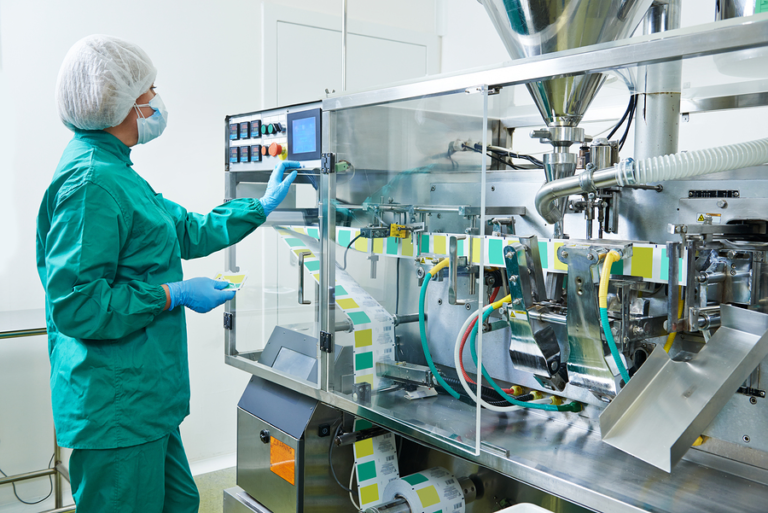
Ensuring a safe environment - climate control in hospitals
Ensuring a safe environment through effective climate control in hospitals is critical for patient safety, infection prevention, and operational efficiency. Modern hospital HVAC (Heating, Ventilation, and Air Conditioning) systems are designed to precisely regulate temperature, humidity, air quality, and airflow to meet stringent healthcare standards. Air Handling Units (AHUs): Central to hospital HVAC systems, AHUs condition, cool, and circulate air throughout the facility, often via duct networks. Some hospitals also use individual room units for finer temperature control in critical areas. Temperature and Humidity Control: Sensors continuously monitor temperature and humidity levels to maintain optimal comfort and safety. Proper humidity control (generally between 20-60%) prevents microbial growth, protects sensitive medical equipment, and supports patient recovery. Advanced dehumidification technologies help achieve these precise conditions, especially in operating rooms and sterile supply areas.
Need a Consultation? Contact Us 24/7
Innovative Test & Measurement Solutions for Market Leadership



